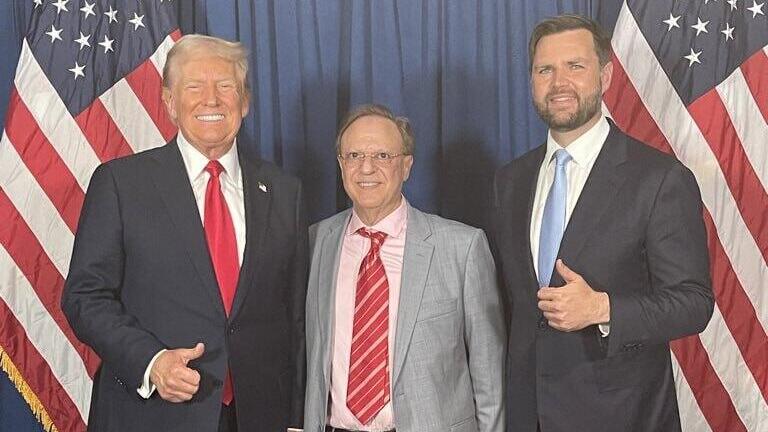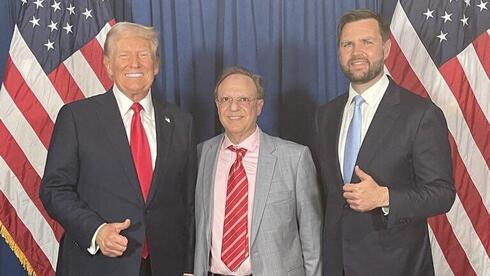Though not an official member, Bahbah declared he would now operate independently. In a Facebook post addressed to Gaza’s residents, he wrote, “I’m not a mediator in the full sense but I share your suffering. My role is to carry your voice to those responsible, big and small. I haven’t forgotten you and never will. Ceasefire talks are currently stalled.”
2 View gallery


U.S. President Donald Trump, Bishara Bahbah, Vice Presidnet JD Vance
(Photo: via X)
In late May, Bahbah proposed a 70-day ceasefire plan involving the release of 10 hostages in two phases. A senior Israeli official dismissed it, saying, “No Israeli government would accept this proposal. Hamas’s conditions undermine the war’s objectives and hinder hostage releases.”
Bahbah facilitated indirect talks between the U.S. and Hamas, notably brokering Alexander’s release, an initiative driven by Hamas rather than the U.S. Direct negotiations collapsed after an alleged Israeli leak aimed at derailing them, coupled with Jerusalem’s sharp criticism.
Razi Hamed, a senior Hamas negotiator, then contacted Bahbah through Suha Arafat, proposing Alexander’s release. Sources told Ynet that Hamas representatives in Doha and Gaza secured a U.S. commitment to press Israel for renewed humanitarian aid to Gaza through this channel.
A vocal advocate for a two-state solution, Bahbah served in the Palestinian delegation during multilateral peace talks in the 1990s. He later edited the Palestinian newspaper Al-Fajr and engaged in humanitarian work, authoring numerous articles on Middle Eastern political and social issues.
Despite building a life in the U.S., Bahbah remains deeply tied to his homeland. “It will always be my home, no matter where I live,” he told Arab News in 2018. “My children were born in the U.S., but I registered them with UNRWA. When I die, I want to be remembered as a Palestinian. It’s our eternal right.”
